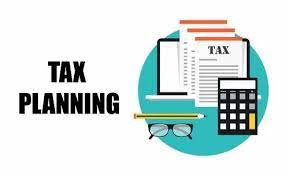Tax planning for salary earners involves various strategies to optimize your tax liability. Here are some tips to consider:
1. Understand your tax brackets:
Familiarize yourself with the income tax brackets and rates applicable to your salary. This will help you determine the optimal allocation of your income to different tax brackets.
2. Utilize tax deductions:
Identify and claim all eligible deductions available to you. This may include deductions for expenses such as medical bills, home loan interest, education loan interest, and contributions to specified investment instruments like Public Provident Fund (PPF) and National Savings Certificates (NSC).
3. Maximize exemptions:
Make use of exemptions available under the Income Tax Act. For example, the standard deduction for salaried individuals, house rent allowance (HRA), leave travel allowance (LTA), and transport allowance.
4. Optimize investments:
Invest in tax-saving instruments such as Employee Provident Fund (EPF), National Pension Scheme (NPS), tax-saving fixed deposits, or tax-saving mutual funds (ELSS) to avail of deductions under Section 80C.
5. Consider salary restructuring:
Evaluate the possibility of restructuring your salary components to reduce your taxable income. For instance, you may negotiate for a higher HRA component if you have significant rental expenses or opt for meal coupons or reimbursements instead of taxable allowances.
6. Utilize exemptions for specific expenses:
Take advantage of specific exemptions such as medical reimbursements, meal coupons, and telephone/internet reimbursements provided by your employer.
7. Plan for employee benefits:
Understand and utilize the employee benefits provided by your employer, such as medical insurance, health check-up reimbursements, and meal vouchers, as they may offer tax benefits.
8. Stay informed:
Keep yourself updated on changes in tax laws, exemptions, and deductions. This will help you take advantage of any new provisions or benefits that may be applicable to your salary income.
9. File accurate and timely tax returns:
Ensure that you file your income tax returns accurately and within the prescribed deadlines. Avoid any delays or inaccuracies that may result in penalties or additional taxes.
It’s advisable to consult with a qualified tax professional or financial advisor who can provide personalized guidance based on your specific financial situation and help you create an effective tax planning strategy.
FAQs:
To visit- https://www.mca.gov.in/
Contact: 8130555124, 8130045124
Whatsapp: https://wa.me/918130555124
Mail ID: operations@vibrantfinserv.com
Web Link: https://vibrantfinserv.com
FB Link: https://fb.me/vibrantfinserv
Insta Link: https://www.instagram.com/vibrantfinserv2/
Twitter: https://twitter.com/VibrantFinserv
LinkedIn: https://www.linkedin.com/in/vibrant-finserv-62566a259/

